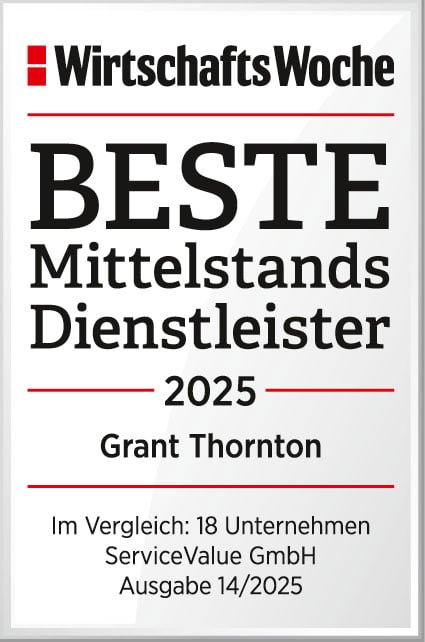-
Audit
Auditing increases the reliability of your company information for decision-makers and users – it’s a matter of credibility and trust.
-
Operational excellence and restructuring
Advisory for businesses, whatever situation they’re in
-
Deal Advisory
We’ll advise you on national and international transactions
-
Valuation & economic and dispute advisory
We’ll value your business fairly and realistically
-
Tax for businesses
Because your business – national or international – deserves better tax advice.
-
Private Clients
Wealth needs trust, transparency and clever minds. We can do that!
-
Business Process Solutions
Measuring and utilising company data
-
Real estate tax
Real estate taxation – we provide answers to your questions!
-
Tax for financial institutions
Financial services tax – for banks, asset managers and insurance companies
-
Tax in the public sector
Advisory and services for the public sector and non-profit organisations
-
Employment law
Representation for businesses
-
Commercial & distribution
Making purchasing and distribution legally water-tight.
-
Compliance & directors’ liability
Avoiding liability at your company
-
Inheritance and succession
Don’t leave the future to chance.
-
Financial Services | Legal
Your Growth, Our Commitment.
-
Business legal
Doing business successfully by optimally structuring companies
-
Real estate law
We cover everything on the real estate sector, the hotel industry, and the law governing construction and architects, condominium ownership, and letting and renting.
-
IT, IP and data protection
IT security and digital innovations
-
Litigation
Designing solutions – we’re your partner for successfully resolving disputes
-
Mergers & acquisitions (M&A)
Your one-stop service provider focusing on M&A transactions
-
Restructuring & insolvency
Securing the future in the crisis.
-
Sustainability strategy
Laying the cornerstone for sustainability.
-
Sustainability management
Managing the change to sustainability.
-
Legal aspects of sustainability
Legal aspects of sustainability
-
Sustainability reporting
Communicating sustainability performance and ensuring compliance.
-
Sustainable finance
Integrating sustainability into investment decisions.
-
Grant Thornton B2B ESG-Study
Grant Thornton B2B ESG-Study
-
International business
Our country expertise
-
Entering the German market
Your reliable partners.
Implementation of a Tax CMS
Companies are facing numerous challenges in complying with the requirements put upon them. Conditions are becoming ever more complex – particularly those to do with tax. Complying with all the legislation and regulations is a critical goal. The requirements on organising tax are growing at the same rate as the requirements of tax compliance. One thing is certain: things are getting more complex — and will continue to do so. We support our clients with implementing a tax CMS based on the practice notes of the Institute of Public Auditors in Germany [Institut der Wirtschaftsprüfer in Deutschland e.V. (IDW)] on designing and auditing tax CMSs under the German standard IDW PS 980.
We focus on the following items for tax CMS:
We observe the following requirements on tax compliance management systems:
Our awards
We’re proud of the awards we’ve won. And we’re just as happy that our clients give us top ratings! We’re working hard to keep it that way. And that’s a promise!
 |
 |
 |
 |
 |



















